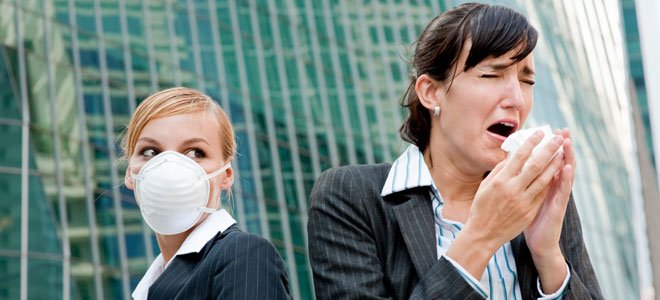Protective masks are a common tool in hospitals and health centers. They are basically used to prevent the spread of a contagious disease, the action of toxic or allergenic agents in the body or in environments where aseptic conditions are essential, such as operating rooms or laboratories.
On many occasions we also find people who use it on a regular basis, on trips to other countries or at times of the year related to the increased incidence of certain pathologies, such as the flu in winter. But is this usage correct?

Types of protective masks
There are different types of masks and, although they may look similar at first glance, they are actually very different depending on their function. The Nursing Council of the Valencia Community differentiates between surgical or hygiene masks and protection masks or respirators.
The former act to prevent microorganisms and pathogens from leaving the carrier, while the latter prevent the biological agents in the environment from being inhaled by the person. The latter is the one that causes controversy about inappropriate use.
When should masks be used?
According to the Centers for Disease Control and Prevention (CDC), the general use of masks outside of healthcare settings is not recommended and other protocols are preferred.
In the case of airborne viral diseases, a flu for example, the affected person can transmit the virus one day before the symptoms appear and up to five days later. For this reason, the CDC recognizes that the use of selective masks does not protect the community from the risk of contagion.
Experts recommend following hygiene protocols by the patient in the presence of another person, such as covering the mouth when coughing, washing hands with alcohol-based soaps or using disposable handkerchiefs. For those sectors with a higher risk of contagion, such as the elderly and children during flu epidemics, vaccination is recommended.
Allergies and pollution
Air pollution in cities is another cause that leads many citizens to use protective masks. However, the Spanish Society of Neurology does not recommend its use in general because most do not filter the smallest particles.
In the case of allergies to pollen in spring, some pharmaceutical companies have developed special masks to prevent inhalation, but the Spanish Society of Allergology and Clinical Immunology does not include its use in its list of recommendations for allergy sufferers.
